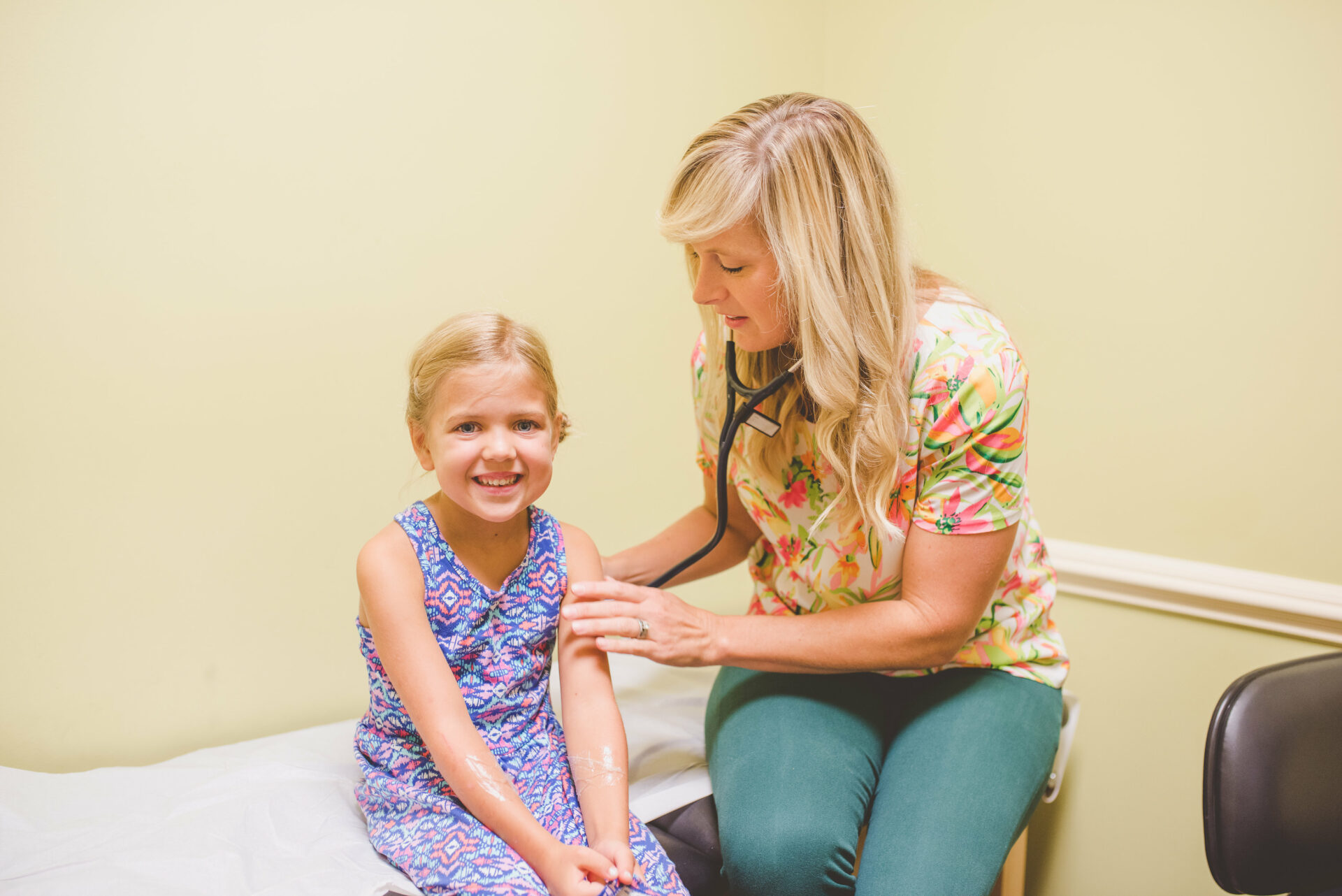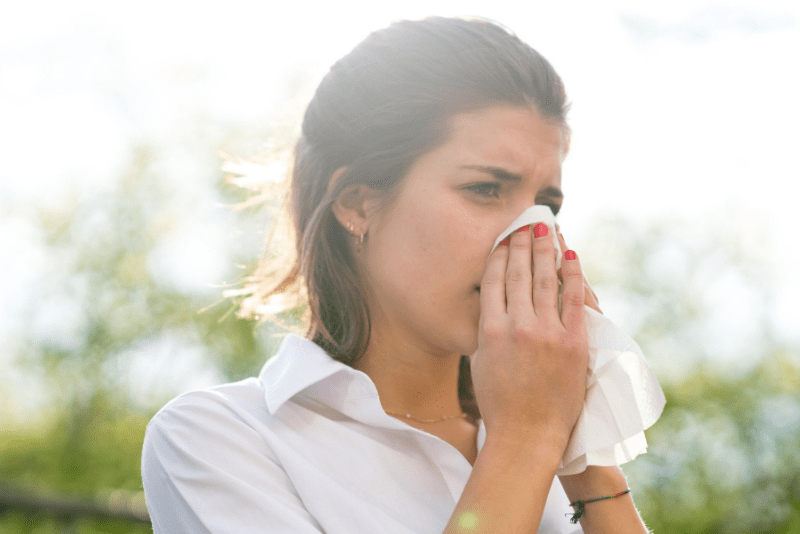Do you suffer from unexplained symptoms? Does sneezing or coughing put your life on pause? Life with undiagnosed allergies can lead to seemingly endless frustration. But what if finding clarity was as painless as a pinch? Let us introduce you to allergy skin testing – a simple, fast and effective way to put you on the path to relief.
What are allergy skin tests, and why do they matter?
Allergy skin tests are diagnostic procedures for identifying a patient’s allergic triggers. These tests involve applying small amounts of potential allergens to the skin and observing the body’s immune response.
Based on the observed reactions, allergists can pinpoint the specific allergens responsible for your symptoms, enabling them to develop a targeted treatment plan to manage your allergies effectively. By identifying the root cause of your allergies, you can take proactive steps to minimize exposure and find appropriate treatments.
Types of Allergy Skin Tests
While each serves relatively the same function, three different types of allergy skin tests are standardly available. Your board-certified allergist will administer the exam best suited for your needs. These types include:
Skin Prick Test: This is the most common type of allergy skin test. In this test, tiny amounts of allergens are applied to the skin’s surface with a small pricking device. If you’re allergic to any tested substances, a small red bump or hive will appear within 15-20 minutes. Skin prick tests are usually performed on the forearm or back and can test for a wide range of allergens, including foods, pollen, dust mites, pet dander and more.
Intradermal Test: This test involves injecting a small amount of allergen under the skin with a thin needle. It is usually performed when the skin prick test results are inconclusive or when testing for specific allergens like insect venom or medications. Intradermal tests are slightly more sensitive but may cause a stronger reaction than skin prick tests.
Patch Test: Patch tests diagnose contact allergies, such as reactions to metals, latex or certain chemicals. In this exam, small patches containing potential allergens are applied to your skin, typically on your back, which must be left in place for several days before the results are evaluated. Patch tests help identify delayed allergic responses.
The Benefits of Allergy Skin Tests
Allergy skin tests offer several valuable benefits to both providers and their patients. Aside from being a reliable, cost-effective option, these tests are known to yield accurate insights and are relatively painless. Skin prick and intradermal tests also provide almost instant results, with feedback for some available within 20 minutes of administration.
What to Expect During Your Appointment
As your partner in allergy relief, your board-certified allergist will support you at every step. Your doctor will begin by conducting a detailed medical history and physical exam. These initial steps are crucial to determining your allergy testing needs. After this, your appointment will typically go as follows:
- Preparing for the Test: Your allergist may instruct you to stop taking certain medications that could interfere with the test results. (More on this below!) Be sure to follow their instructions closely.
- Administering the Test: Depending on the type of test, small amounts of allergens will be applied or injected into your skin. You may feel a slight prick or itchiness, but the discomfort is minimal. The test sites are carefully monitored for signs of allergic reactions.
- Interpreting the Test: For prick and intradermal testing, your allergist will evaluate the test sites after 15-20 minutes and discuss your results, including which allergens you reacted to and guidance on symptom management.
Follow-up and Treatment:
Following the allergy skin test, your allergist will develop a custom, comprehensive treatment plan based on the results and your specific needs. Treatment plans vary widely between individuals and may involve a combination of strategies, including:
- Allergen Avoidance: If specific allergens are identified as triggers for your allergies, your specialist will guide you on minimizing your exposure to these substances. This may involve making changes in your environment, such as using allergen-proof bedding, implementing pet dander control measures, or avoiding certain foods.
- Allergy Medications: Depending on the severity and frequency of your allergic symptoms, your allergist may prescribe medications to alleviate your symptoms. These can include antihistamines to relieve itching, nasal sprays to manage nasal congestion, or eye drops for itchy, watery eyes.
- Immunotherapy: Also known as allergy shots, immunotherapy is considered the closest thing to an “allergy cure.” Treatments involve gradually exposing your body to increasing amounts of the allergen over time, helping your immune system build tolerance and reduce allergic reactions. Immunotherapy can provide long-term relief and potentially modify your immune response to allergens.
Safety and Considerations
Allergy skin tests are generally safe and well-tolerated. However, there are a few considerations to keep in mind:
Risks of Reactions: While rare, there is a minor risk of a severe allergic reaction during the test. For this reason, it’s crucial to have the test performed under the supervision of a board-certified allergist who can promptly manage any potential reactions.
Medication Interference: Certain medications, such as antihistamines, antidepressants and heartburn medication, can interfere with the accuracy of skin test results.
Individual Variations: Each immune system responds differently, so it’s possible to have false-negative or false-positive results. Your board-certified allergist’s expertise will be crucial in guiding you toward accurately interpreting your exams.
Find your path to relief with Charleston Allergy and Asthma!
At Charleston Allergy and Asthma, we provide Lowcountry patients with a clear path to allergy relief. Whether you are living with a food allergy, struggling with asthma or need help clarifying unknown symptoms, our board-certified allergists are here for you. Contact our team to schedule your next allergy appointment.




